I’ve said it many times, you need to learn more to earn more! In addition to reading an hour a day, I try to attend a seminar or webinar every month. This month it was New Approaches to Inflammation and Recovery: The Science of Collagen Peptides. Below are some key points from that talk.
Build New Collagen
Dr. Jeffrey Bland points out that collagen peptides not only supply the body with the raw materials to build new collagen but also act as messengers to stimulate the production of new collagen.
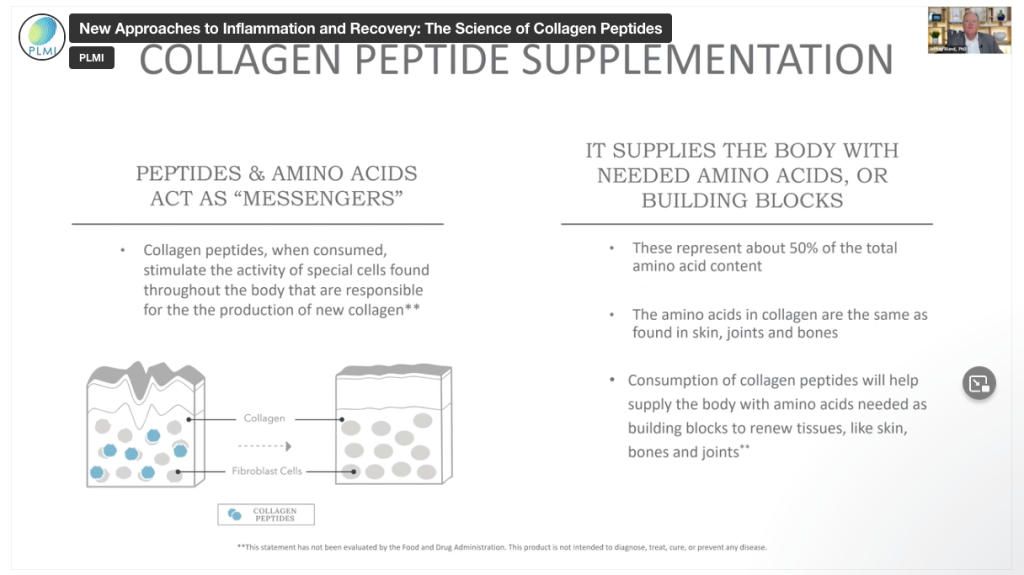
Food Trumps Supplements
Dr. Leonidas Karagounis shows several interesting studies – one that demonstrates the superiority of collagen peptides compared to other dietary supplements for treating osteoarthritis, and another showing that food (bone broth) trumps dairy and collagen supplements with regard to total and essential amino acids. The take-home message is that collagen supplementation is great for joint-related issues, but bone broth is even better!
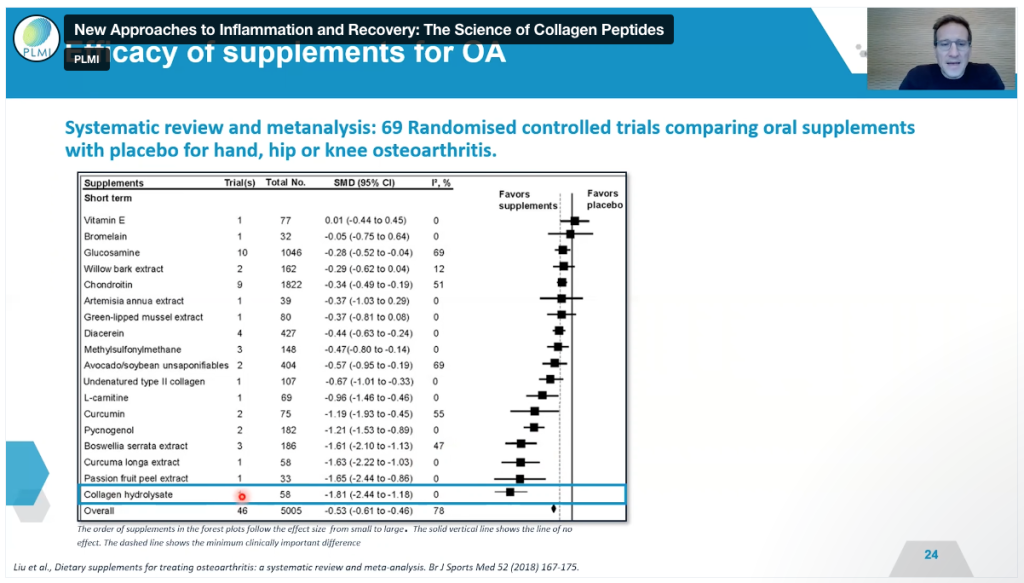
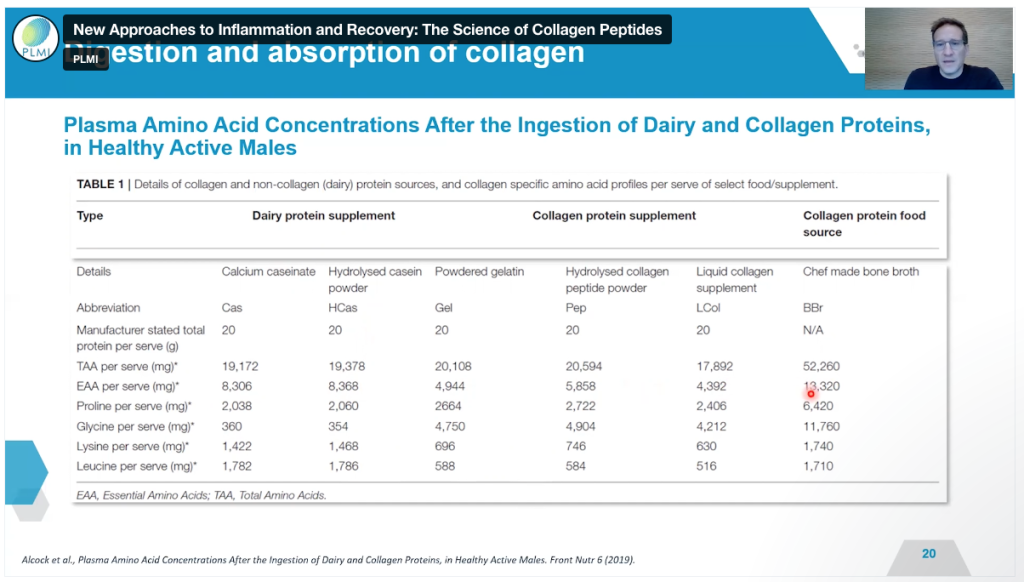
“Meat” Your Protein Needs
Here are two key points from Ayla Barmmer in this presentation:
a) There are well-documented health benefits to a plant-based, but not plant-exclusive, diet.
b) The Protein Leverage Hypothesis states that the body will continue to seek calories until protein needs are met, and collagen peptides will help you meet those needs.
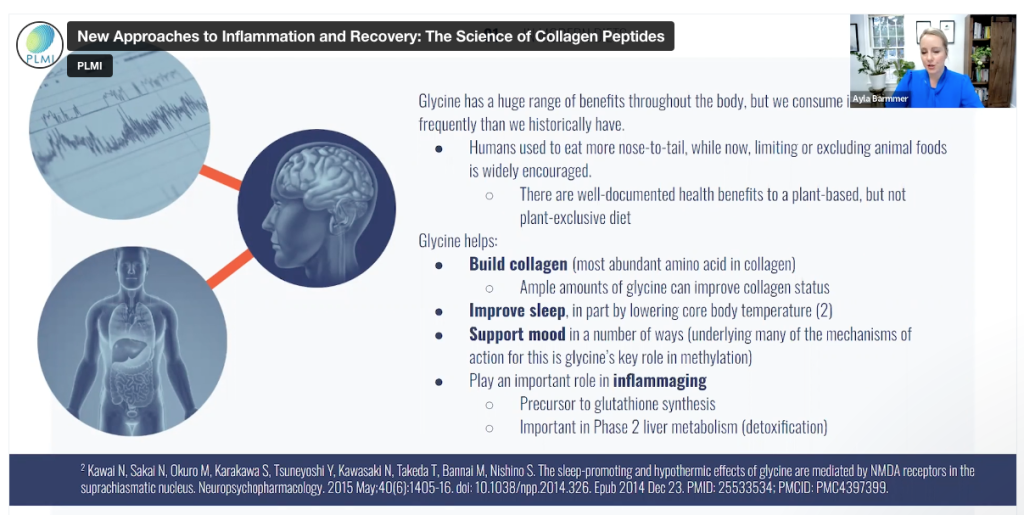

Dosing Collagen Peptides
Depending on your preferences, collagen peptides can be taken at different times during the day: some people prefer to blend collagen peptides with their coffee first thing in the morning, while others will take them around a workout – either before training (mixed with electrolytes and a pre-workout formula and/or after training (mixed with whey protein). Some prefer to take them as a bedtime snack mixed with yogurt.
The dosage per day is typically 10–20 grams, but as Chris Duffin points out, you may need 2–3 times that amount during an injury. Glycine is the key amino acid found in collagen. For connective tissue health, aim for at least 10 grams of glycine a day. There are 2.5 grams of glycine in a 10-gram dose of collagen hydrolysate (de Paz-Lugo et al., 2018), so you’ll need to take 40 grams of collagen peptides to meet that quota or supplement with additional glycine.
For a wider spectrum of raw materials to support connective tissue health, use a blend of bovine, chicken, and fish sources of collagen. This is the Collagen Formula that I use daily. Unlike gelatin, the beauty of collagen is that it dissolves readily in hot or cold liquids and mixes easily with foods like yogurt or oatmeal.
Bottom Line: Consider supplementing with collagen peptides when bone broth is not an option.
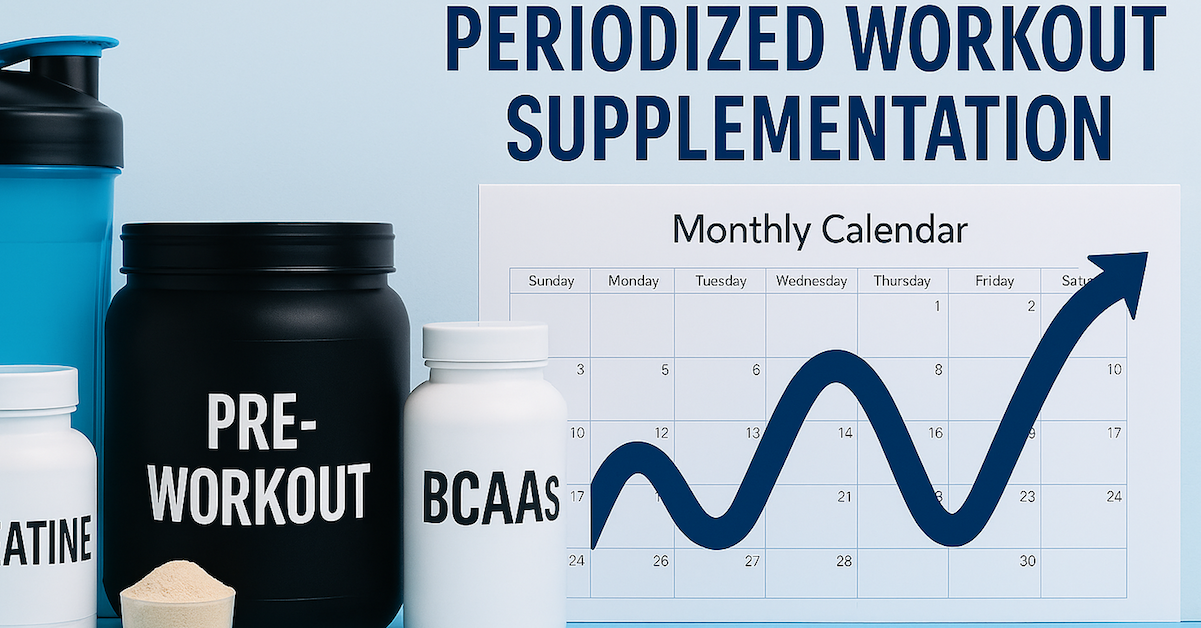
How to Periodize Workout Supplements for Better Gains and Recovery
Research shows that undulatory, or wave-like, periodization is highly effective. Alternating between periods of higher intensity (intensive phases) and periods
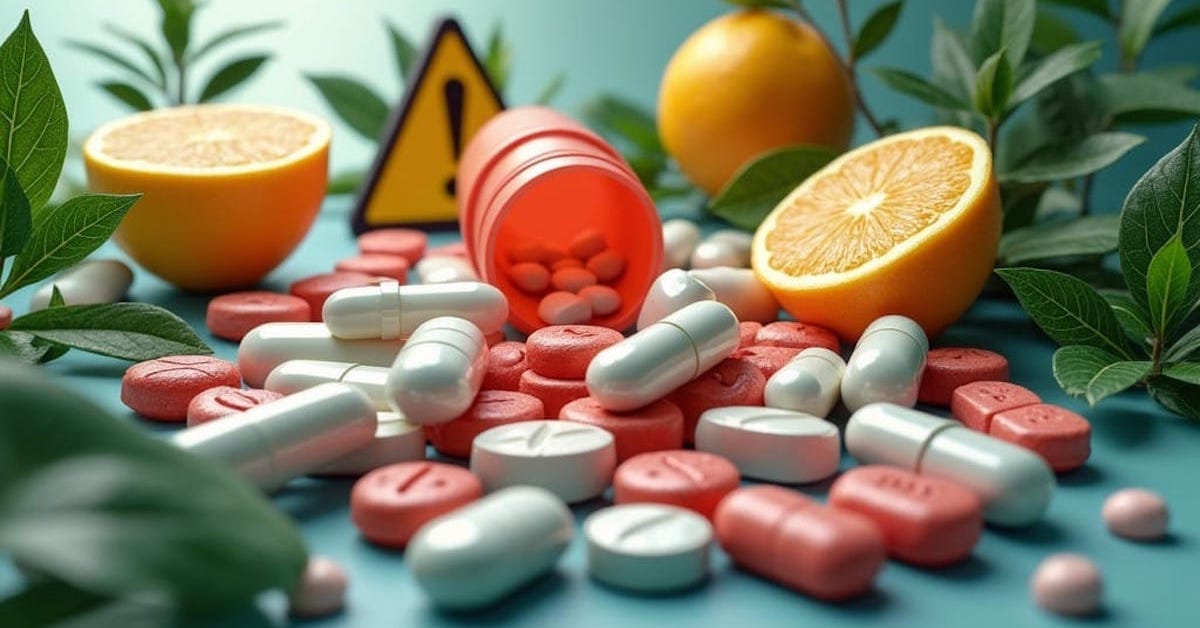
Why the FDA’s Red Dye Ban Should Make You Rethink Your Vitamins
The U.S. Food and Drug Administration (FDA) recently announced a ban on red dye No. 3 in food and oral

Hydration Essentials for High-Protein, Low-Carb Diets: Fuel Your Body Right
When you’re exercising regularly on a high-protein, low-carb diet, hydration becomes even more crucial. Lower-carb diets mean you’re missing out
follow
Error: No feed with the ID 2 found.
Please go to the Instagram Feed settings page to create a feed.
